Wanted to go back and do write-ups for the rest of the movies in my last post. I already went back and added a some comments on Supercop but I'll re-post those as well, just in case they were missed.
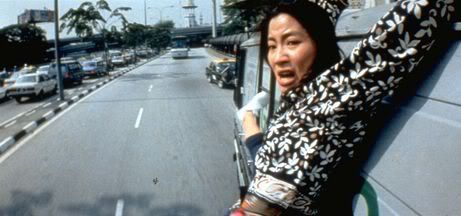 Supercop
Supercop (Stanley Tong, 1992)
Stunt-heavy actioner has Jackie Chan's breezy Hong Kong "supercop" and Michelle Yeoh's stuffy Mainland-Chinese security chief going undercover as a brother-sister pair to infiltrate a gang of heroin-smugglers. The plot is stronger than usual and Chan is in top form but what sets this apart from countless other of his vehicles is Yeoh's triumphant return to film after her 3-year retirement/marriage to a rich businessman named Dickson Poon (...). This movie has the famous climactic fight in Kuala Lumpur in which she jumps a motorcycle onto the roof of a moving train and then seamlessly ditches it for some fisticuffs. The director, Stanley Tong -- who also began his career as a lowly stuntman -- certainly deserves plenty of credit for testing many of the more dangerous stunts on himself before allowing his actors to attempt them.
 Straw Dogs
Straw Dogs (Sam Peckinpah, 1971)
I'm curious what the usual reading of this movie is. Dustin Hoffman plays an emotionally impotent mathematician, which seems to be a bit of a stereotype at first but when he eventually lets down his guard he reveals a much more odd and compelling character. The presentation is interesting because while it's part western in how the bad guys are portrayed, it also starts becoming more and more of a horror film towards the end. If you view it like that, a couple of the plot-inconsistencies start to make a bit more sense. Overall a pretty interesting film.
-
 Maboroshi
Maboroshi (Hirokazu Koreeda, 1995)
I looked up the average shot duration for this film, which at least one source estimates at over 25 seconds. That puts this film in Tarkovsky territory, but the story scans much more easily than, say, The Mirror. It's about a woman grieving the enigmatic suicide of her first husband, even six years later when she's re-married. The way the movie is structured (I think the only really happy and warm moment in Yumiko's second marriage comes somewhere in the middle of the movie) foregrounds the lack of closure for this woman. 25 seconds is still pretty long and demands a lot of either contemplation or boredom from the audience, but it's also helped by a strong sense of composition and light. The visual tone is generally somber and cool as well, with a lot of scenes filmed at long range, characters grading into the scenery. Another strength of the movie is the setting. Much of the film takes place on the rough, weather-beaten west coast of Honshu (cf.
Warm Water Under a Red Bridge.)
 Revanche
Revanche (Götz Spielmann, 2008)
Another, seemingly more optimistic film with a rural setting about coping with the loss of a loved one. This has much more of a narrative direction and is probably a little more accessible than Maboroshi. I think my ranking this a little lower is based on lighting.
 Le Corbeau
Le Corbeau (Henri-Georges Clouzot, 1943)
Entertaining mystery-thriller about an anonymous letter-campaign to destroy a doctor, set in a provincial French Village. Strong use of the camera to convey that everyone in the town is a mute witness and potentially the villain, with a clever revenge subplot that turns on this notion.
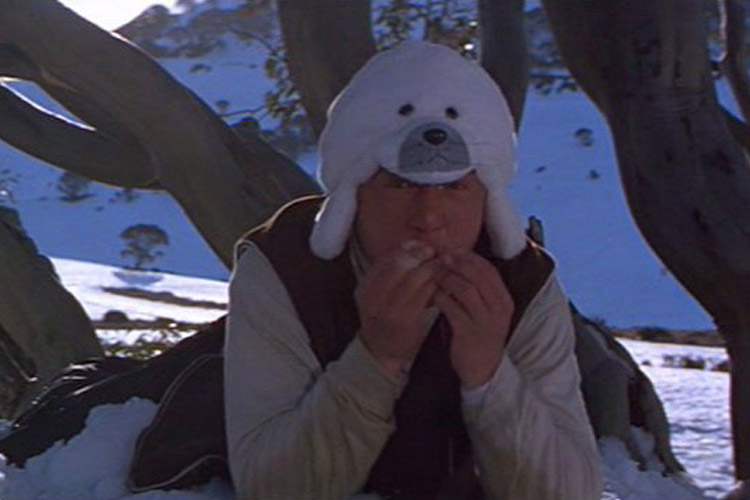 Jackie Chan's First Strike
Jackie Chan's First Strike (Police Story IV) (Stanley Tong, 1996)
While it has a number of fun set-pieces (notably a fist-fight in the shark tank at an aquarium) and a globe-trotting, bond-like plot, there are quite a few Jackie Chan films that I would recommend over this.
-
 The Postman Always Rings Twice
The Postman Always Rings Twice (Tay Garnett, 1946)
Somewhat middling 40s crime film in which a pair of illicit lovers schemes a way to get rich and stay together, but is predictably torn apart by their own actions. Unlike Scarlet Street (another well-regarded "film noir" that I watched recently) the focus here seems not to be on the moral choices of the characters, but in the comic-madness of their exploits and undoing. The dialog and acting is humorously camp.
-
 The Lost World: Jurassic Park
The Lost World: Jurassic Park (Stephen Spielberg, 1997)
Inconsistenly impressive sequel to the original Jurassic Park that follows the same formula as the original versions of The Lost World and King Kong, and in a couple scenes seems to prefigure Peter Jackson's adaptation of the latter film. I felt this was inconsistent at just about every level. The opening scene with the family having a picnic with amplified/T-Rex-like waves in the background worked for me. It's pretty over-the-top and far from subtle but I like that layering and I found the tone of the scene kind of nightmarish and bizarre. On the other hand there is plenty of stale imagery, the most redolent example of which is probably the ending shot as we exit the island (the splendor of cg monsters reclaiming their island looks posed and cramped, like a poorly designed museum diorama). Some of the continuity is excellent and exciting while at other times it's incoherent and clumsily advances the plot. Likewise with the characters, there are a couple compelling supporting people (particularly Pete Postlethwaite's sensitive Big Game hunter) but most of the main characters come off as malicious doofuses propped up as venial do-gooders. The bad guy is one-dimensional even by blockbuster standards (money money money). Overall I ended up liking it though. I believe a lot of the corny stuff is knowing and even the stuff that seems less-intentional is still pretty silly and fun.
+
 A Better Tomorrow III
A Better Tomorrow III (Tsui Hark, 1989)
This is actually a prequel to the first film with Chow Yun-Fat traveling to war-torn Vietnam to safely bring home his Cousin and Uncle. There's plenty of action and some emotionally powerful moments but overall the movie is just o.k. After John Woo (who directed the first two movies) and Tsui Hark had their falling out over The Killer, Woo did his own Vietnam-Hong Kong epic Bullet in the Head, which is about as good as this.
The Learning Curve (Eric Schwab, 2001)
Stylish film by Brian DePalma's frequent assistant director. It holds your attention and has a cynical sense of humor (mostly about the entertainment industry) but the ending is bit obvious and underwhelming. Worth giving a shot.
+
 Gaslight
Gaslight (George Cukor, 1944)
Occasionally-tense drama about a two-faced bastard who somehow convinces his wife that she's insane. Some of the ambiguity and suspense would work better if his evil plot wasn't so obvious to everyone other than the woman.
 Scarlet Street
Scarlet Street (Fritz Lang, 1945)
Blacker-than-black "noir" about a would-be-painter who gets scammed by a couple of heels and in turn makes a few shady choices of his own. There's some obvious self-reference in how his paintings symbolically (but sometimes bluntly) reflect characters and scenes in the film, along with an ironic ending showing how his passion and moral failure eventually drive him insane but I couldn't really care much about what happened and the clever parts seem somewhat mechanical to me.
 Kamui Gaiden
Kamui Gaiden (Yoichi Sai, 2009)
Easier to follow than Ninja Bugei-cho but still pretty convoluted Sanpei Shirato adaptation that is also much more conventional. The wire-work and computer effects are laid on pretty thick as is the gore. The first half of the story is available in two translated volumes (Legend of Kamui), which I would recommend tracking down instead of the film.
 Bring It On
Bring It On (Payton Reed, 2000)
Tongue-in-cheek teen romance that has a little bit of charm and a couple very funny scenes. (My favorite character is pictured above).

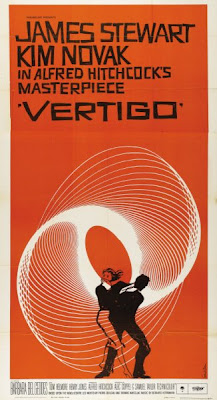

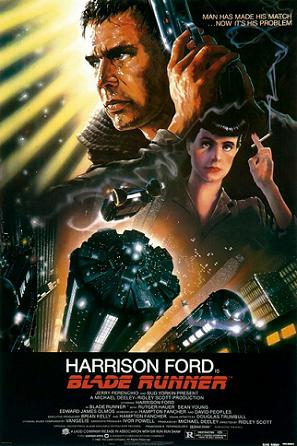



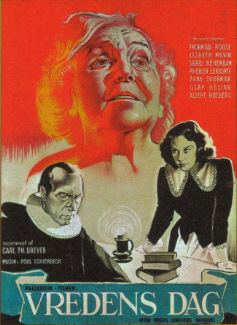




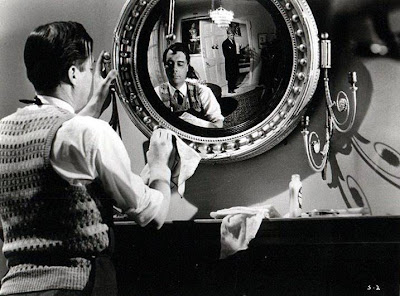
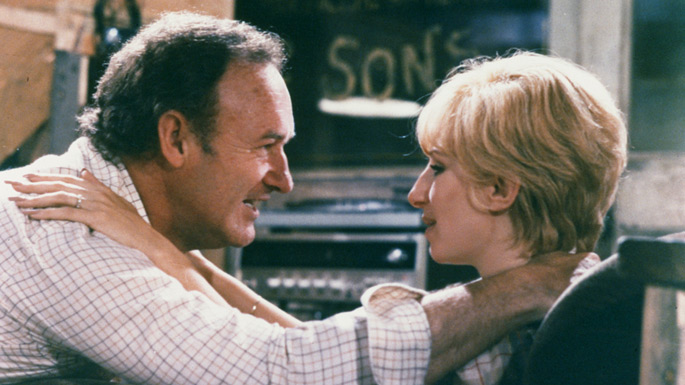




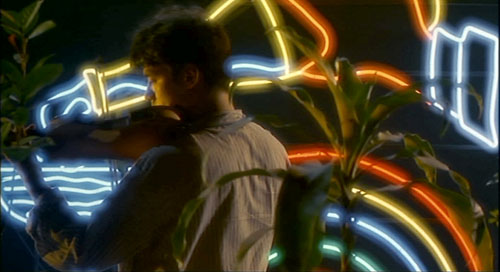
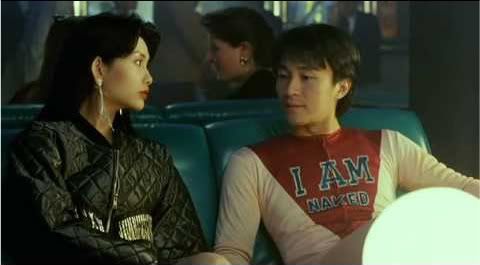



.jpg)




















 Rewatch.
Rewatch.